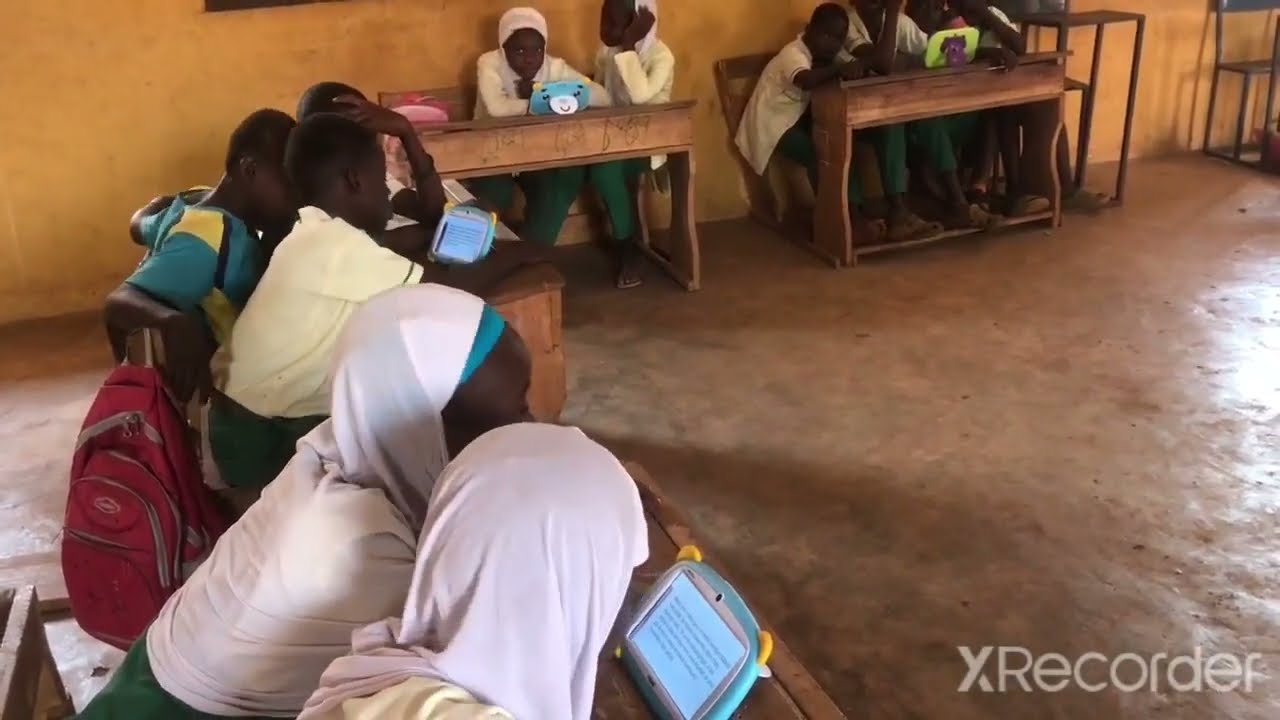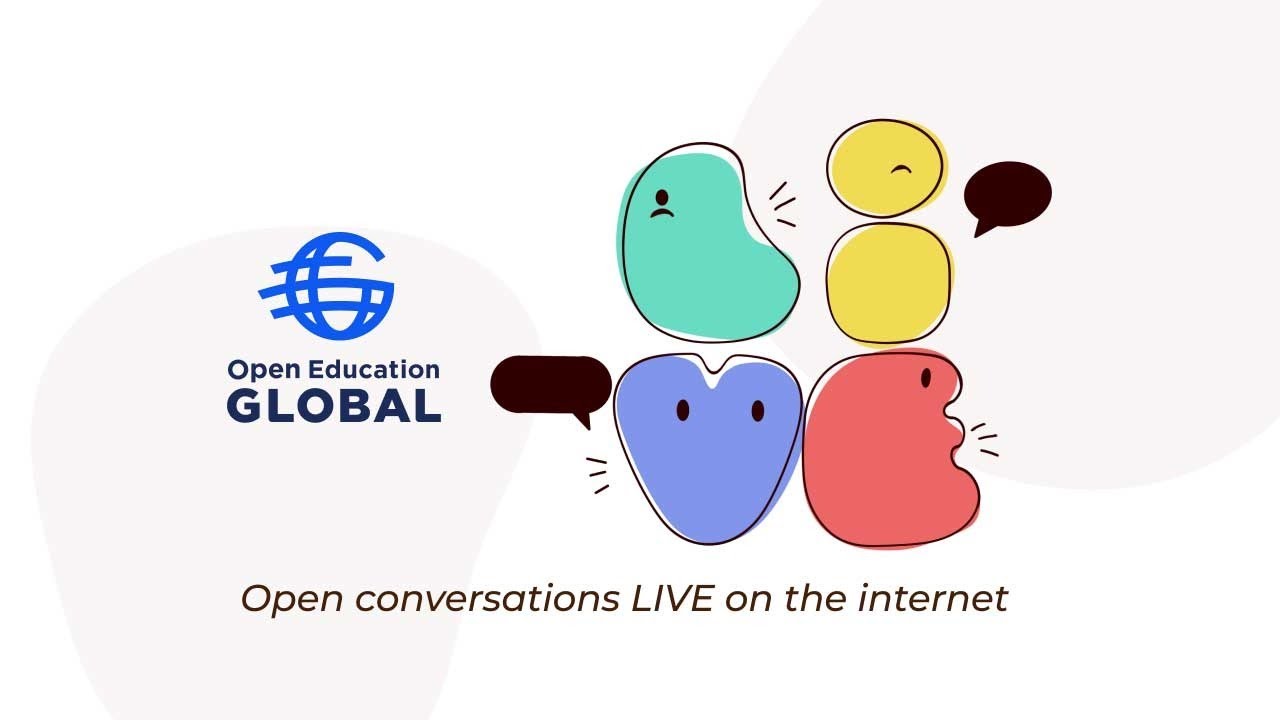Alongside live streamed sessions directly from the OEGlobal 2023 conference, we are bringing the OEG Live studio to Edmonton for (wifi allowing) live connections with conference attendees. As a bonus, we are excited to bring you a show with a project I’ve wanted to share, especially as the presenters are unable to travel to the conference-- it seemed like a great pre-conference activity, to generate more of the braiding we are trying to do here in OEG Connect.
In this show we are bringing you an project that is providing required literacy learning in the mother tongue for students in parts of Africa where local language literacy is required but teachers are not supported- watch a small example of this project in action:
In the studio we are inviting Dan McGuire @danmcguire from SABIER who I am counting on to reply with more details on this project (but see below) plus colleagues Kathryn Kure and Nomvuyo Mgoqi (from South Africa) and Peter Amoabil (Ghana) to learn first hand the impact of this powerful use of OER.
![]() When (in your local time): 2023-10-05T15:30:00Z→Invalid date
When (in your local time): 2023-10-05T15:30:00Z→Invalid date
![]() Watch: https://www.youtube.com/watch?v=z_S5_HSzXk8 Watch the recording:
Watch: https://www.youtube.com/watch?v=z_S5_HSzXk8 Watch the recording:
More About the Project
(from an accepted OEGlobal 2023 proposal that due to travel limitations cannot be part of the program)
Our presentation will provide a description and the initial results of a project conducted between March and December of 2023. This project is funded by a grant from the Creative Commons Open Education Platform with additional support from STEAM NPC of Durban, South Africa; SABIER of Minneapolis USA; and Siemens-Stiftung of Munich, Germany.
The project consists of three major components. They are:
Creating, curating, sourcing OER content that meets the needs of elementary students aligned to both Ghanaian and South African standards. A special emphasis will be on incorporating materials edited and adapted for and translated into the local languages in addition to the use of English language materials. The courses will be openly licensed and shared via MoodleNet.
Implementing the OER content on open source MoodleBox software on a portable server that does not require internet access.
Creating professional development courses for teachers to support their implementation of the OER curriculum. These Prof Dev courses will be conducted on an open source Moodle system; the courses will be openly licensed and shared via MoodleNet.
Our goal is that by October 1, 2023, teachers at two schools in rural Ghana and one in a township in the Western Cape, SA, will be participating in the ongoing professional development. Nomvuyo Mgoqi, who was an Education Specialist at the University of Cape Town, will lead teacher for professional development in the Western Cape with support from Kathryn Kure of the STEAM Foundation NPC. Peter Amoabil will be the lead teacher for both schools in Ghana with support from Dan McGuire of SABIER.
This project supports the attainment of the UN Sustainable Development Goals and UNESCO’s Education for Sustainable Development (ESDs); it fosters inclusive participation; and it’s an Innovative application of Open Educational Resources and curriculum design.
Ghana and South Africa face similar problems in providing education at all levels but especially at the elementary level. A particular problem in both countries is the availability of appropriate reading material. Both countries have national requirements that instruction is to be provided in the mother tongue of the children for at least the first three years and then gradually transition to the dominant language, usually English. Ghana and South Africa have eleven official local languages each for a total of twenty different languages.
The Catch 22 is that neither country is able to provide materials in the local languages. Teachers are left to make it up on their own with chalk and chalkboards. Our project provides a solution. Editable digital books are provided via a portable server that does not require internet access. Students access the server via inexpensive WIFI only devices. Teachers are trained in the process of translating and creating appropriate assessments in both English and the local languages - Dagbani in Ghana and isiXhosa in South Africa. This project is replicable nationally in both countries and for all of the various local languages which will benefit over 9 million elementary students.
We hope you can be there to learn more about this globally focused open education effort.

